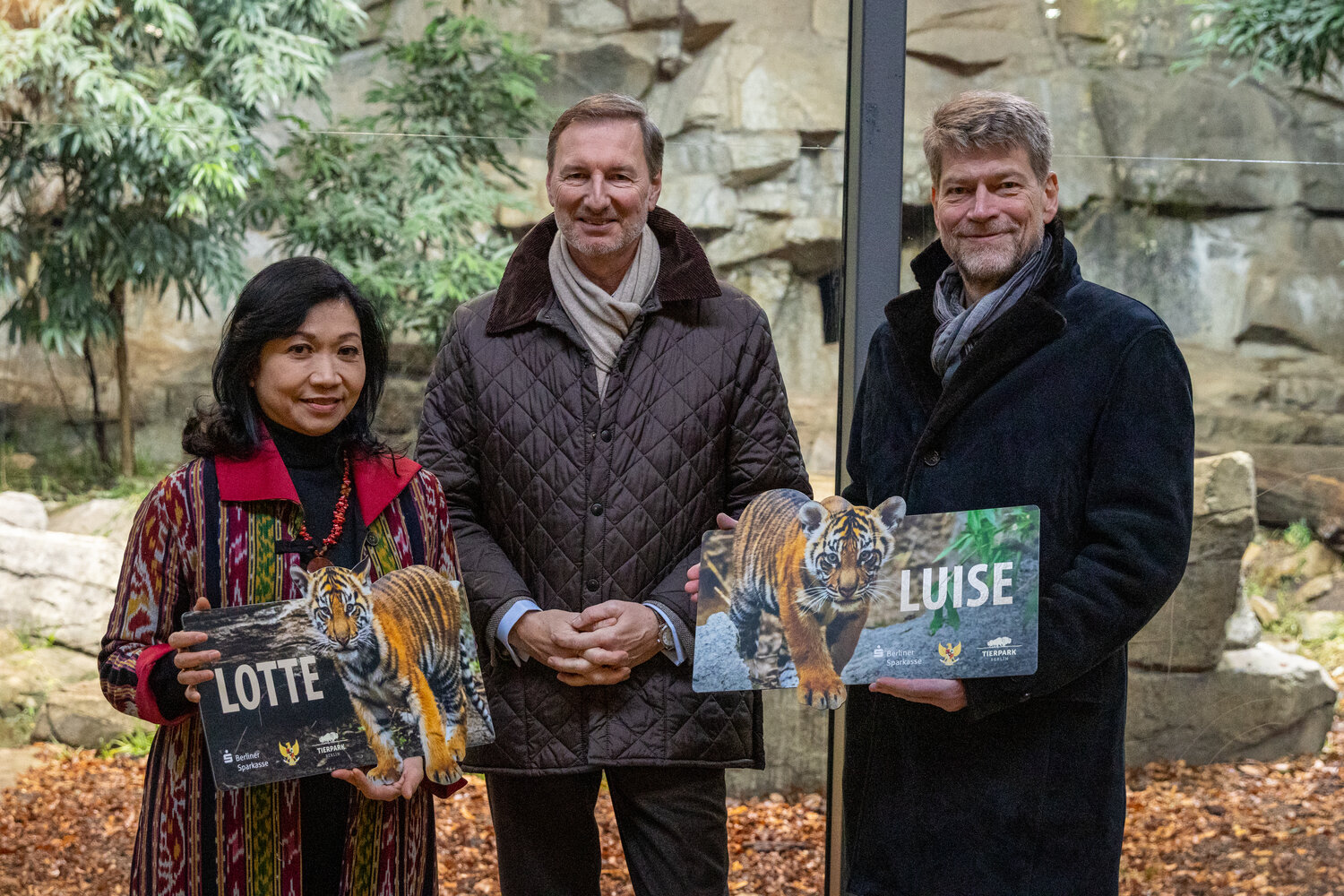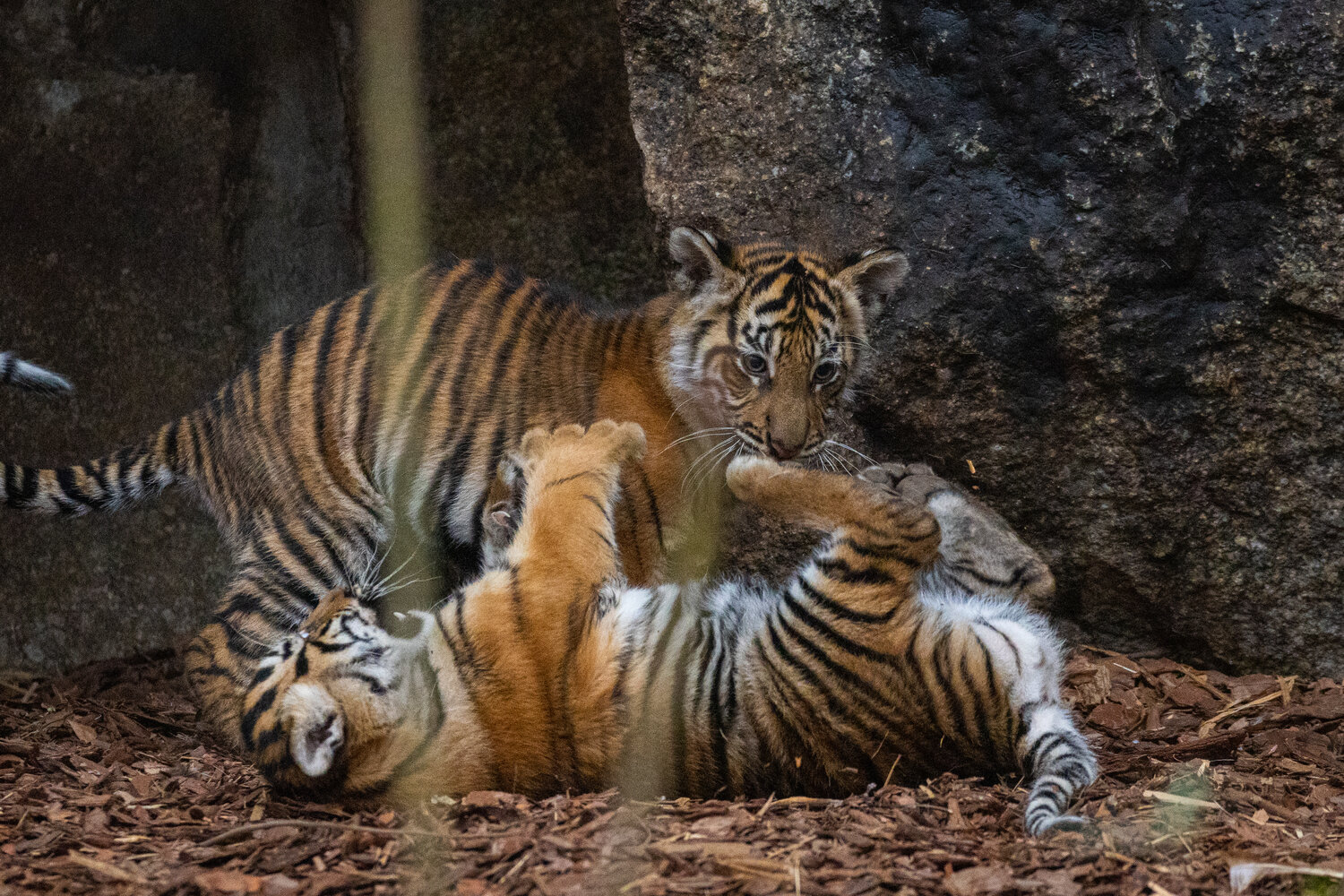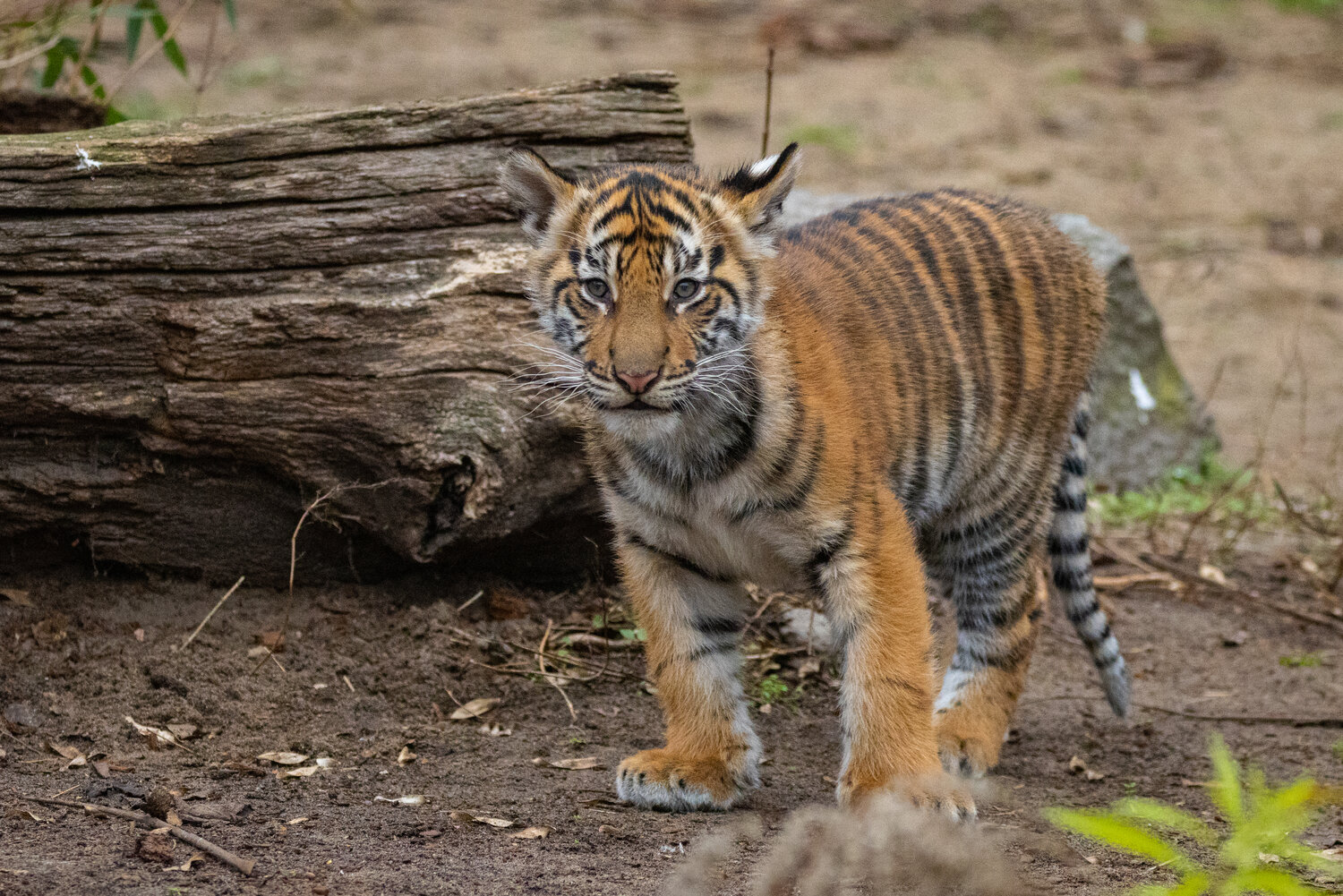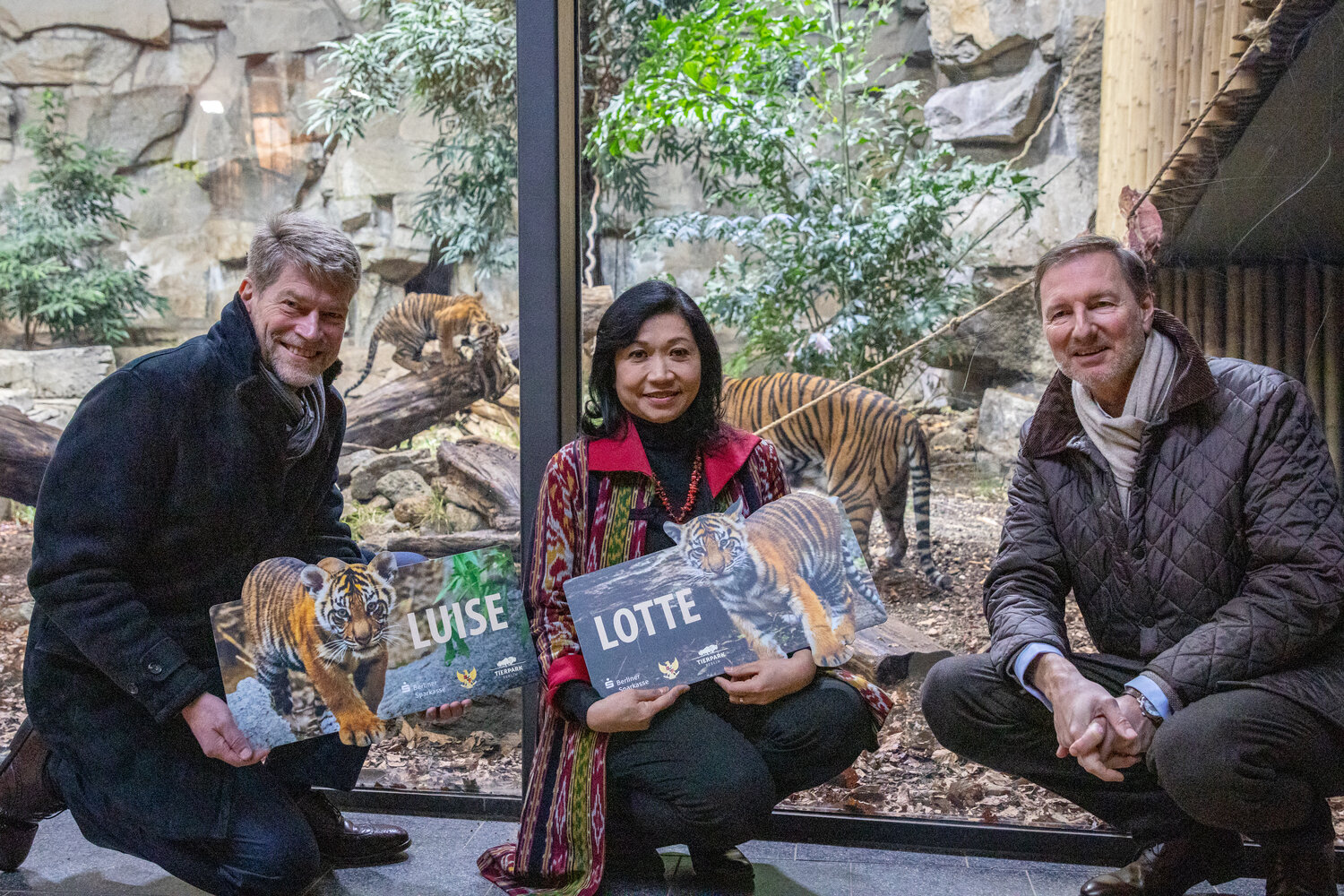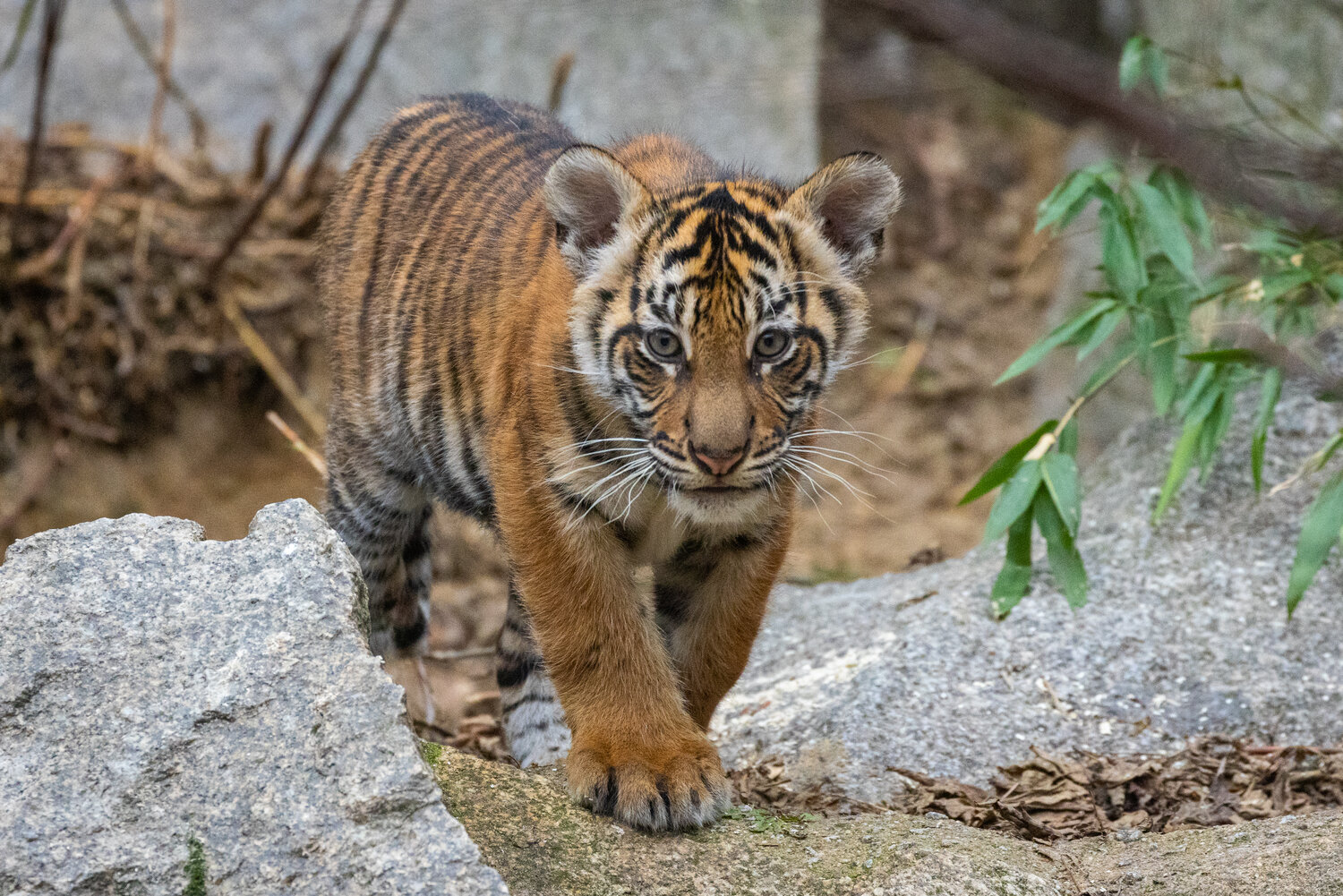As of today, the two Sumatran tigers who were born at Tierpark Berlin on 1 September officially have names: Luise and Lotte. The suggestion was the clear favourite of the jury, which consisted of Zoo and Tierpark Director Dr Andreas Knieriem, tiger curator Matthias Papies, Indonesian ambassador’s wife Sartika Oegroseno, and representatives of the cubs’ sponsor, the Berliner Sparkasse bank. Also present at the naming ceremony were representatives from the Indonesian Embassy, who were delighted to witness mother Mayang (11), father Jae Jae (14) and the twins enjoying family life.
“It is such a joy to watch the tiger family interacting,” says Dr Johannes Evers, CEO of the Berliner Sparkasse. “As very proud sponsors of these endangered animals, we called on people all over Berlin to take part in the search for names.” More than 700 submissions were received by the Berliner Sparkasse alone. “Selecting our favourites from the many lovely and original suggestions was no easy task,” Evers adds. Many of the proposals came with explanations, stories and even photos – and just as many suggestions were submitted to Tierpark Berlin via its own communication channels. “Luise and Lotte are two names that have a nice connection to the cubs’ place of birth,” explains Knieriem. “They are the names of the spirited twin sisters in Erich Kästner’s famous 1949 children’s book Das doppelte Lottchen (“The Parent Trap”), which he wrote in Berlin.” Yet Knieriem goes on to point out that when the birth of an animal is such a cause for celebration as it is for these Sumatran tigers, that is often a sign all is not well with their fellows in the wild: Sumatran tigers are currently classified as “Critically Endangered” by the International Union for Conservation of Nature (IUCN), with only an estimated 400 of the majestic cats left roaming their habitat in the Indonesian rainforest. With their internationally coordinated breeding programmes, modern zoos represent one of the last glimmers of hope for these threatened big cats. A Global Species Management Plan (GSMP) is in place for the Sumatran tiger, which brings together all regional conservation breeding programmes, such as the European Endangered Species Programme (EEP), and coordinates them on a global scale. This creates even better chances of success for the survival of critically endangered species. “Indonesia actively supports international conservation breeding programmes for endangered species and supports Tierpark Berlin, which has a long tradition of species conservation and enjoys a close and long-standing relationship with Indonesia,” underlined His Excellency Arif Havas Oegroseno, Ambassador of the Republic of Indonesia.
Background threats and rainforest loss
An important task of modern zoos is to raise awareness of species extinction and the role humanity plays in it. That is why the core message at the Tierpark’s Rainforest House, which is where the Sumatran tiger family lives, is a serious and sombre one: the survival of these incredibly biodiverse tropical paradises is under threat all over the world. Animals like the Tierpark’s tigers are ambassadors for their species, serving to remind people how important it is to protect natural habitats in the long term. Humans are the main threat to the survival in the wild of the species represented at the Rainforest House. Increasing demand for resources is particularly evident in these biodiversity hotspots: an area of rainforest the size of dozens of football pitches is destroyed every minute. Traces of the disappearing rainforest can be found everywhere in our daily lives – in meat, paper, mobile phones. Rampant consumerism is responsible for the destruction of our planet’s “green lungs”. This issue is brought to life in the building’s central exhibition, #tracesoftherainforest. At six research stations focusing on different areas of everyday life, visitors of all ages can embark on an interactive quest to discover the many different ways in which we can all help protect the rainforest and save endangered species like the Sumatran tiger.
